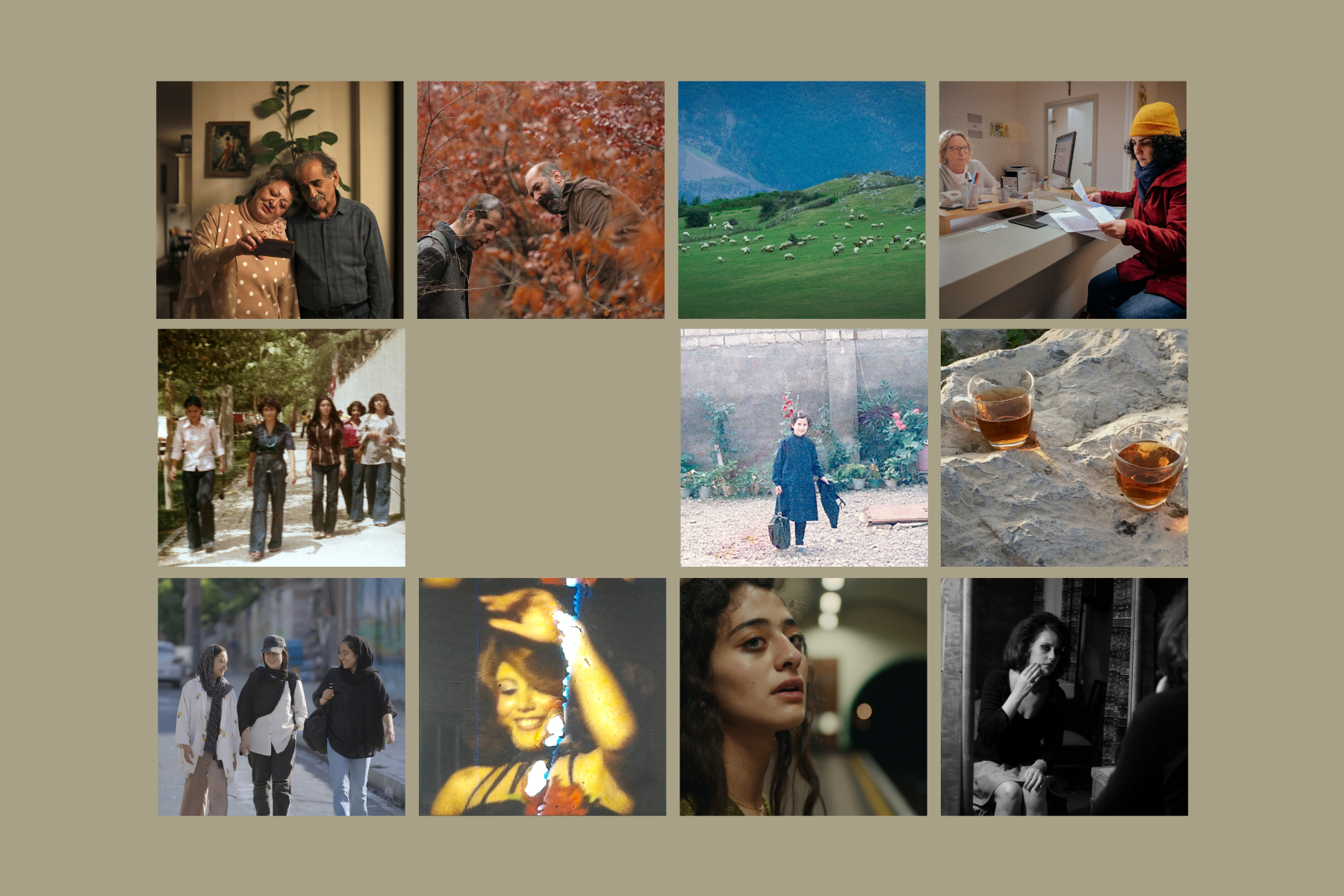Welcome to my spotlight on Iranian films at Berlinale! In this post, I’m taking you through every Iranian film across all sections of Berlinale 2024, not just those produced in Iran but also ones featuring Iranian characters or directors.
Table of Contents
Why Iranian Films
In the vast realm of cinema, the boundaries drawn by political borders often fail to encapsulate the true essence of artistic expression. While I am not an advocate for dichotomizing artworks based on geopolitical lines, the winds of change sweeping through Iran make it impossible to ignore the profound impact on the country’s cinematic landscape.
Iran currently stands at a historical crossroads, where the echoes of demands for change reverberate louder than ever. This societal shift naturally extends to the realm of cinema, a powerful art form that mirrors the intricacies of social challenges. Notably, the latest wave of change has seen directors, including the renowned Asghar Farhadi, taking a stand against the mandatory depiction of Hijab for women in movies, as he discussed it in a conversation with Le Monde.
As a member of the Iranian diaspora, I view the world through the lens of someone yearning to be on the streets where monumental change is underway. It’s still soon to tell since the festival just started but I can guess that this sentiment could be palpable in a couple of films showcased this year at Berlinale.
Furthermore, the Iranian presence in the cinematic workforce has experienced a significant migration. While a comprehensive study is yet to be conducted, as a devoted film enthusiast who stays until the last credit rolls, I’ve noticed a burgeoning number of Iranian names gracing the credits.
The festival’s executive director, Mariëtte Rissenbeek, emphasized in her forward to the program that independent filmmakers from Iran continue to receive support, a testament to the festival’s commitment to diverse voices.
In the European Film Market, the Iranian Independent Filmmakers Association (IIFMA) take the place of the state organisation and will represent independent Iranian filmmakers.
Iran’s cinematic contributions in Berlinale 2024 span across multiple sections, including Competition, Encounters, Panorama, and Generation. To delve deeper into these sections, read my previous post, Lights, Camera, Berlinale: Your Guide to the Sections (2024).
Let’s unravel the tapestry of Iranian cinema at this year’s Berlinale and witness the dynamic intersection of art, culture, and the winds of change.
My Favorite Cake
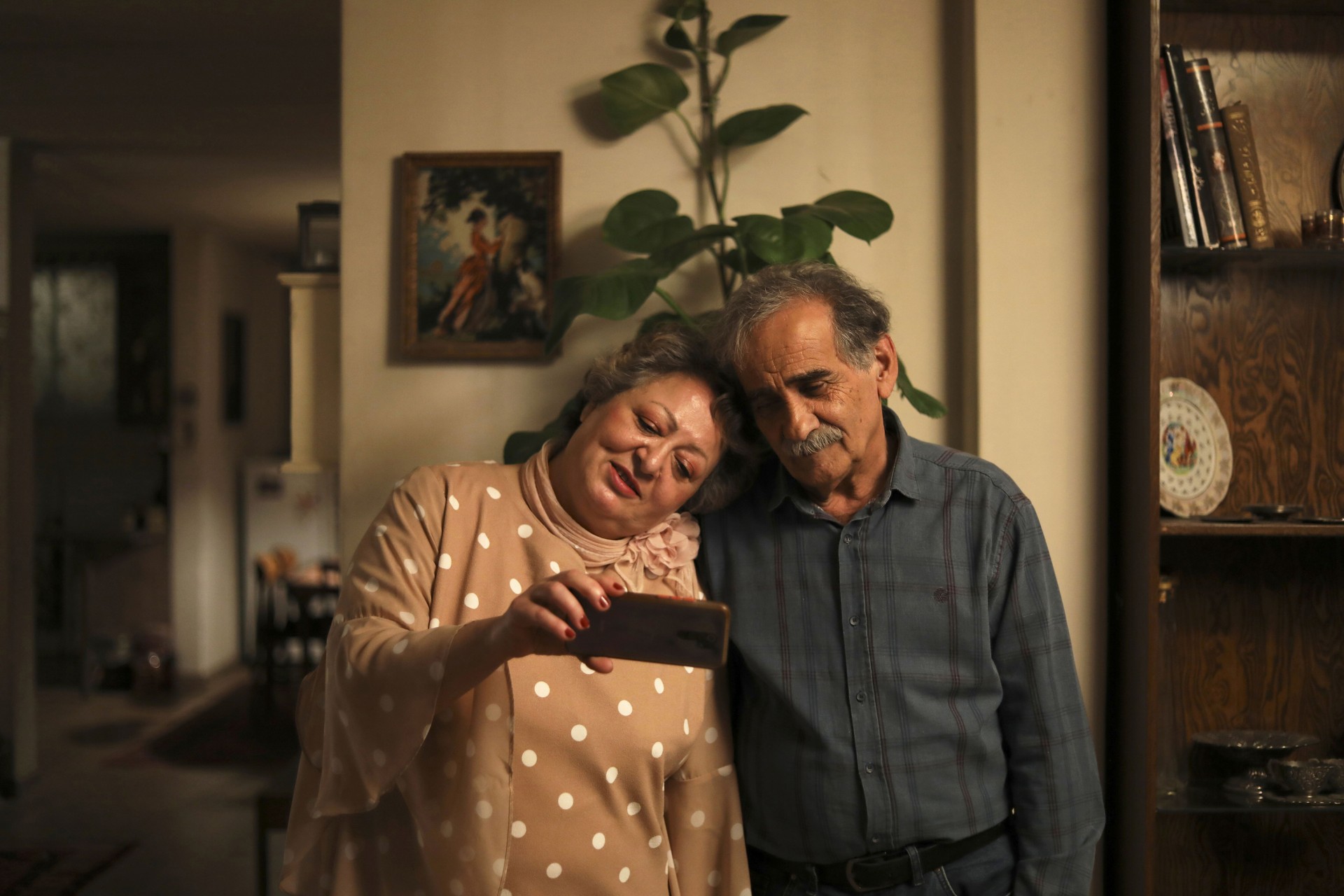
© Hamid Janipour
Section: Competition
Directors: Maryam Moghaddam & Behtash Sanaeeha
Iranian writers/directors Maryam Moghaddam and Behtash Sanaeeha, who have a significant history with the Berlinale, face travel bans and legal challenges related to their work. Despite these obstacles, their previous film, Ballad of a White Cow, was well-received in the 2021 Berlinale, and their latest work, My Favourite Cake, has been selected as one of the Iraninan Films in Berlinale for Competition in the 2024 edition.
I still cherish the fond memories of watching Ballad of a White Cow during Berlinale’s summer special. The open-air cinema experience brought a warm breeze and a delightful feeling of summer—an unexpected opportunity that arose amid the threat of the pandemic.
Let’s hope they can come back this year and watch their newest film surrounded by an enthusiastic audience.
Read my review about this film here: My Favorite Cake or Observations on Age-Appropriate Cinema.
The Great Yawn of History
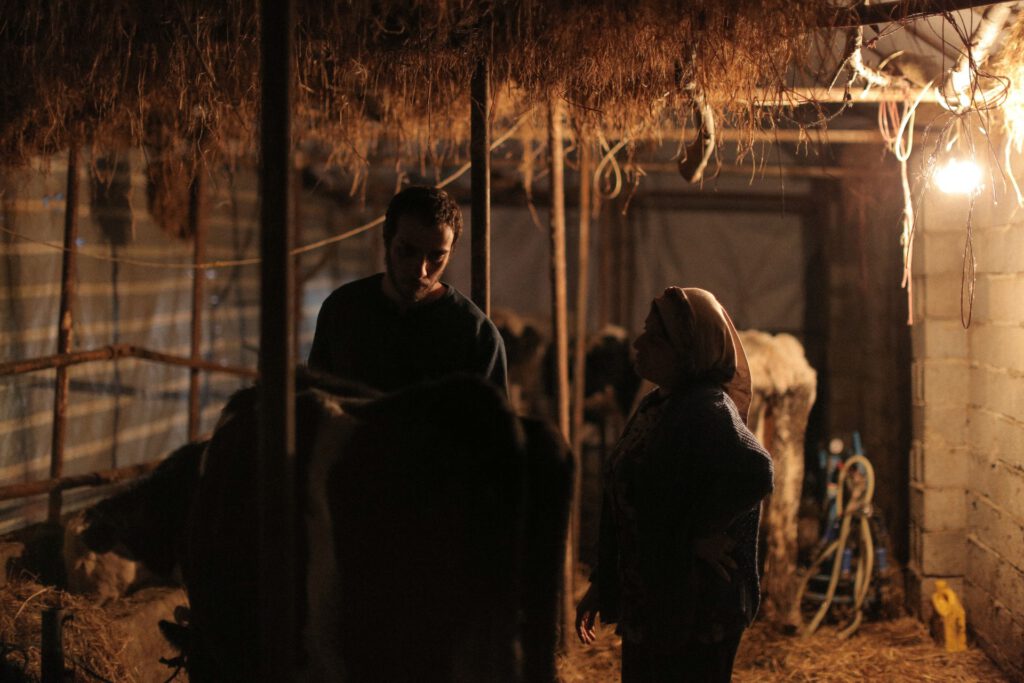
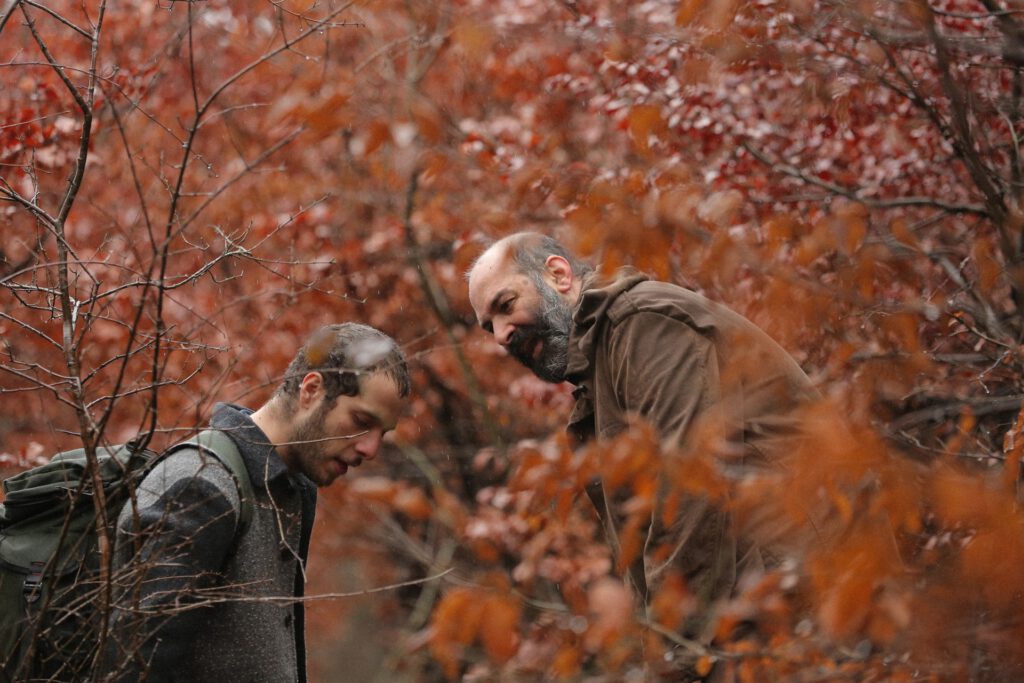
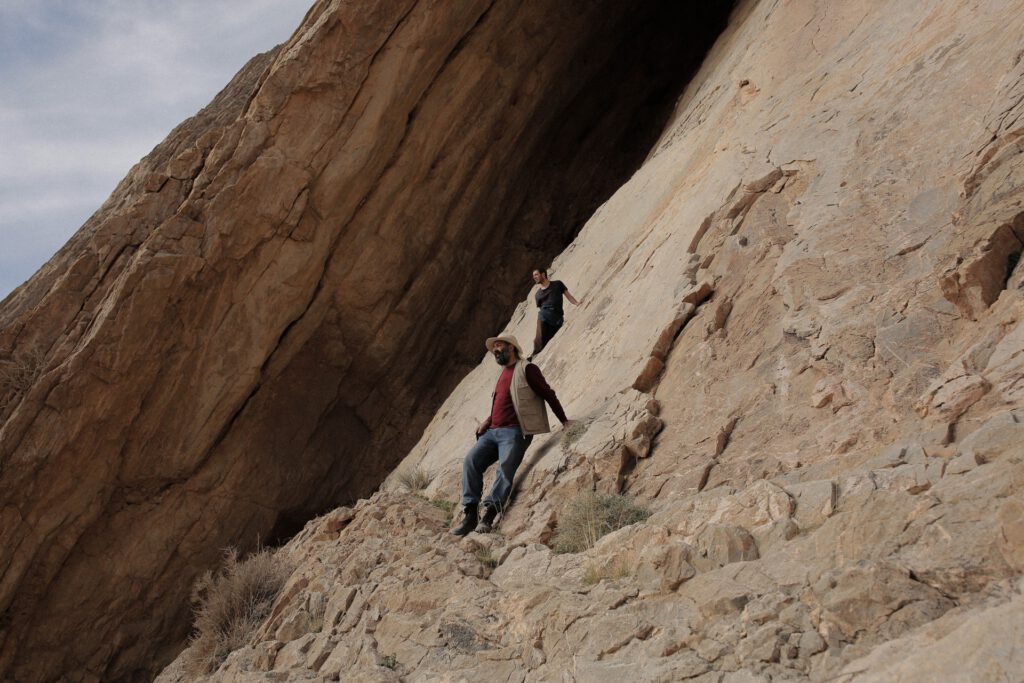
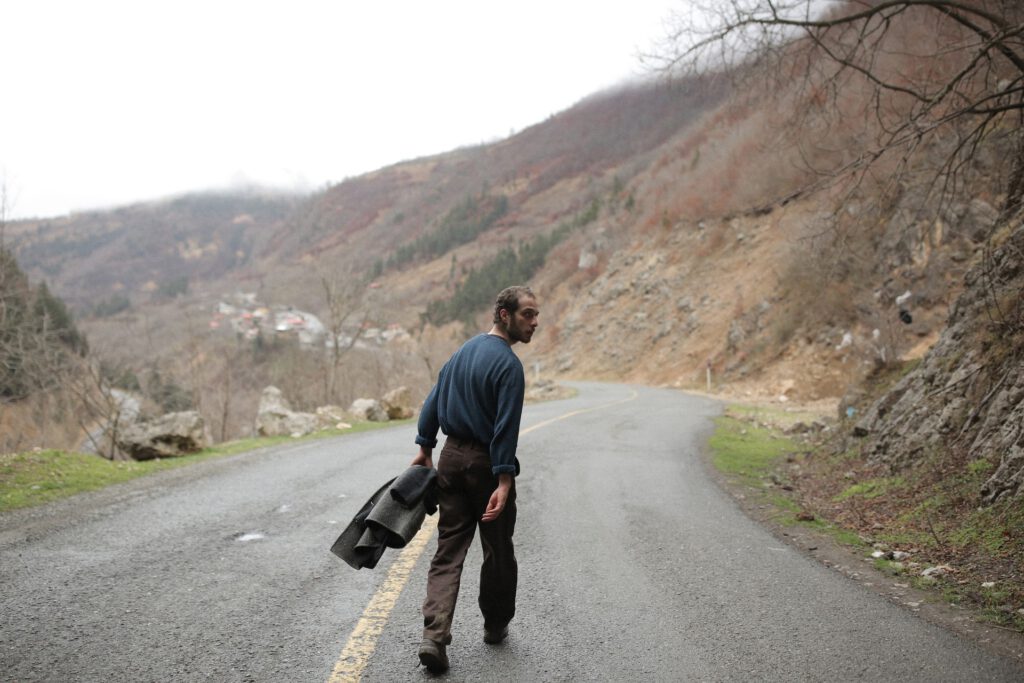
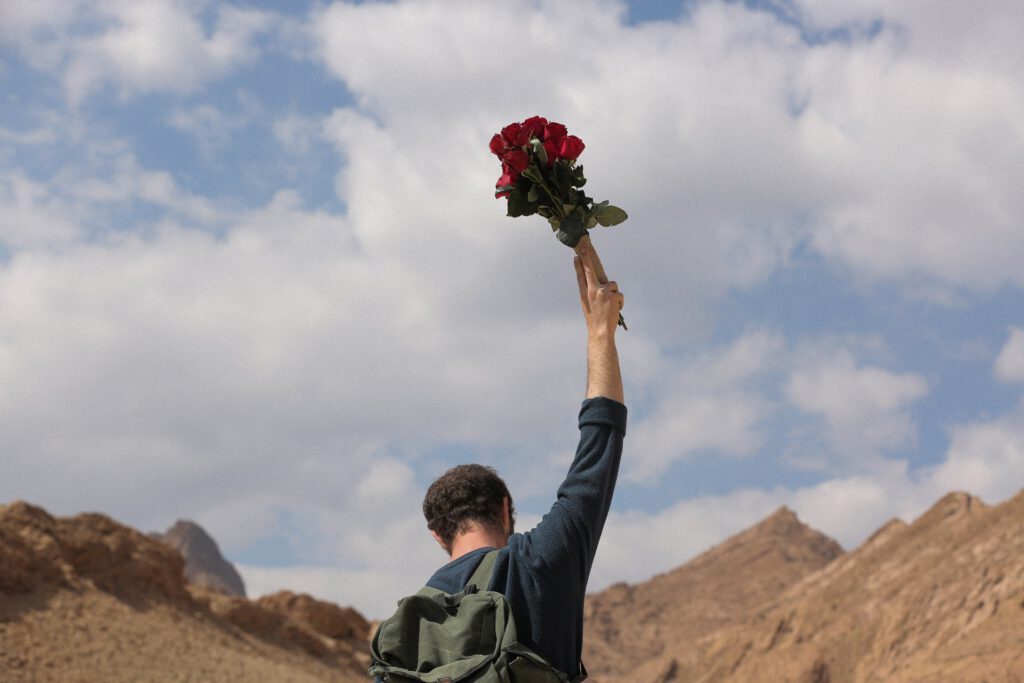
Section: Encounters
Director: Aliyar Rasti
Iranian video artist, Aliyar Rasti, is set to make his debut as one of the Iranian films in Berlinale in the Encounters section with his first feature. The Great Yawn of History revolves around Beitollah, a devout man whose dreams are haunted by a box of gold coins hidden at the end of a cave. Fearing the non-halal nature of the treasure, he enlists the help of a non-religious assistant to join him on this intriguing quest.
Sheep (short film)
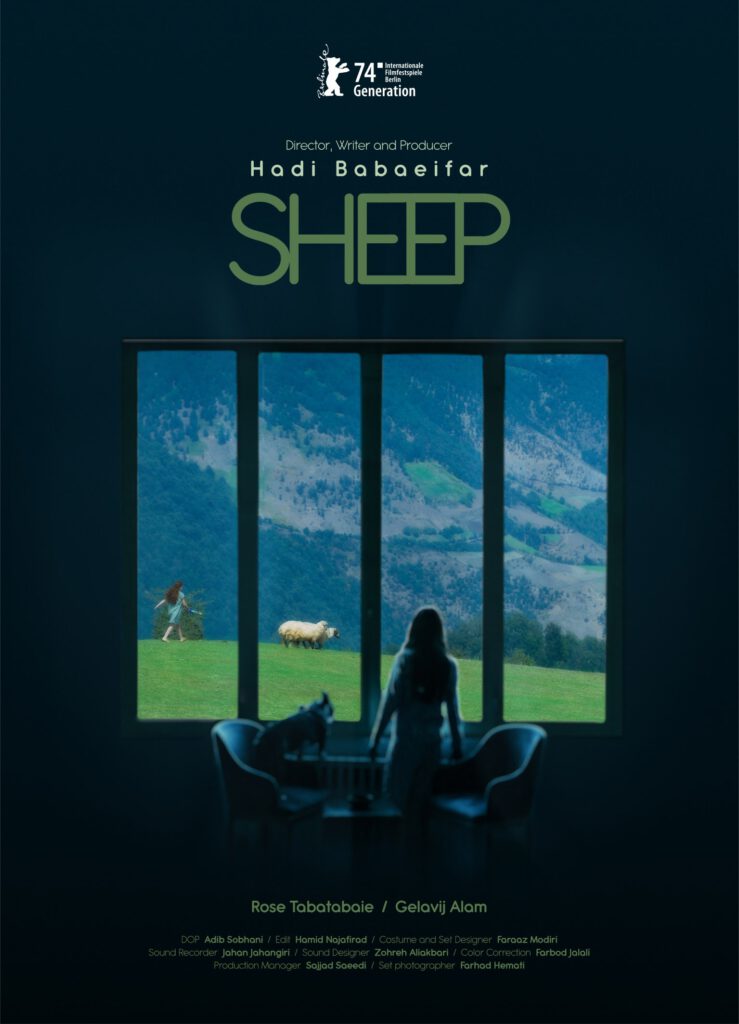
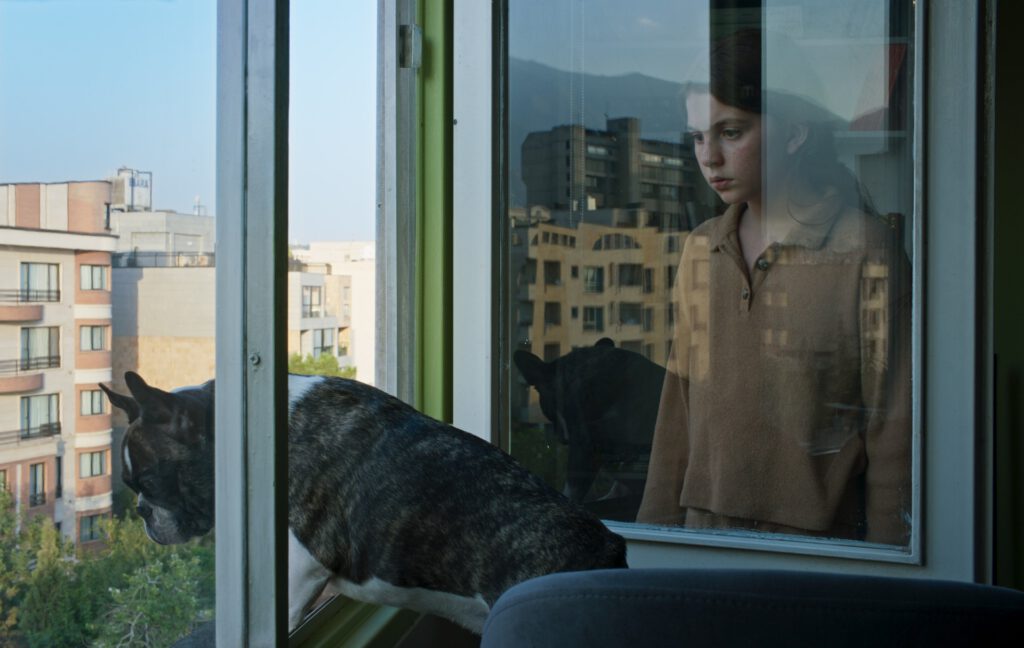
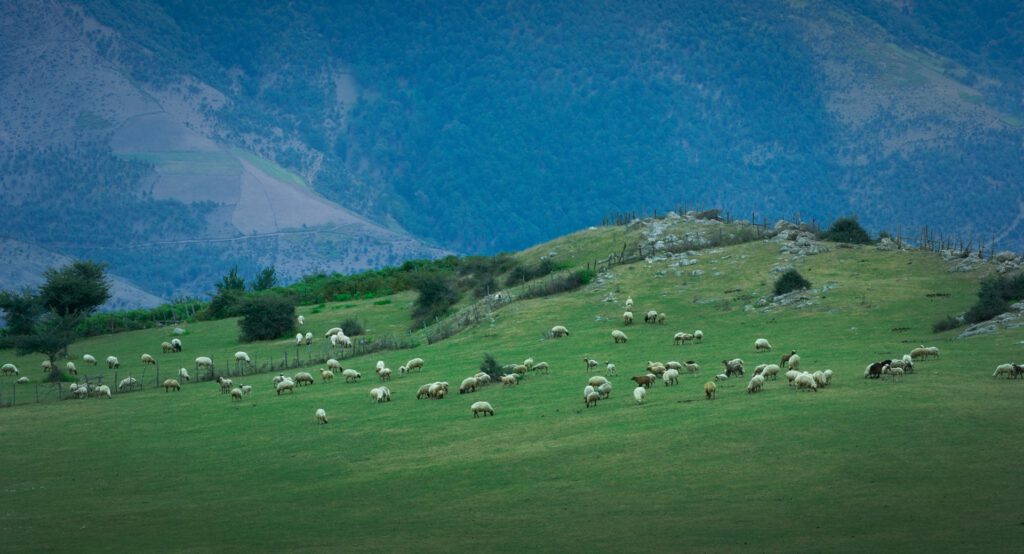

Section: Generation Kplus
Director: Hadi Babaeifar
Hadi Babaeifar is set to return as one of the Iranian films to the Berlinale following his acclaimed film Deer in 2021, which earned him the Special Prize of the International Jury in Generation Kplus for the Best Short Film.
This year, he presents his latest short film, Sheep, which unfolds the narrative of a young girl residing with her mother in Tehran. In this poignant tale, she stumbles upon the realization that the sheep in her neighbors’ backyard are destined for sacrifice in a traditional ritual. Driven by compassion, she resolves to rescue as many animals as possible.
Maydegol
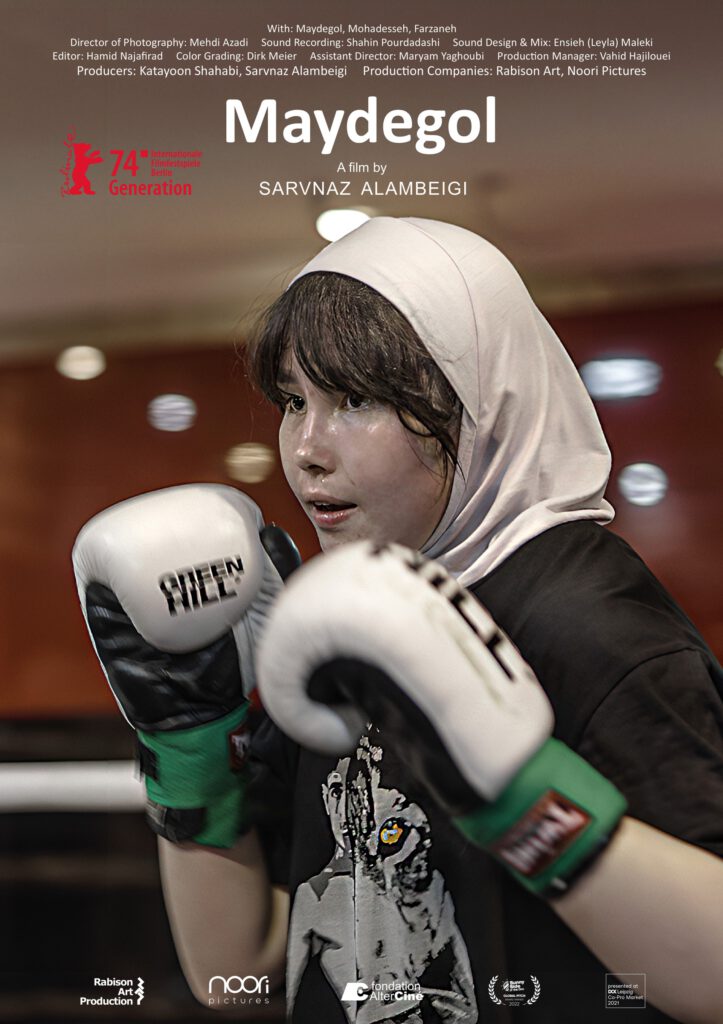
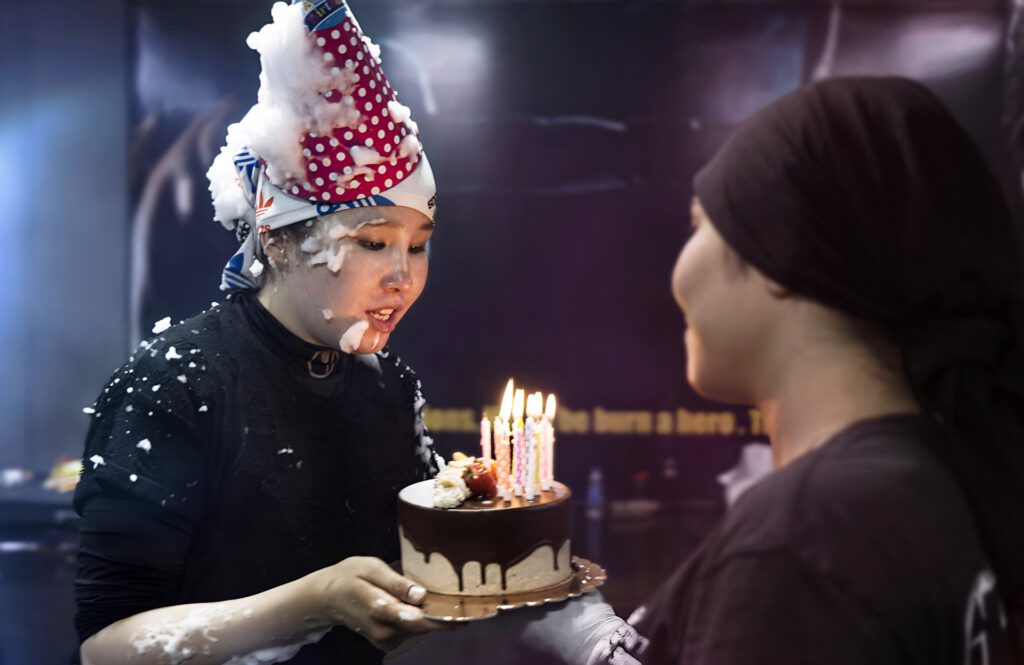
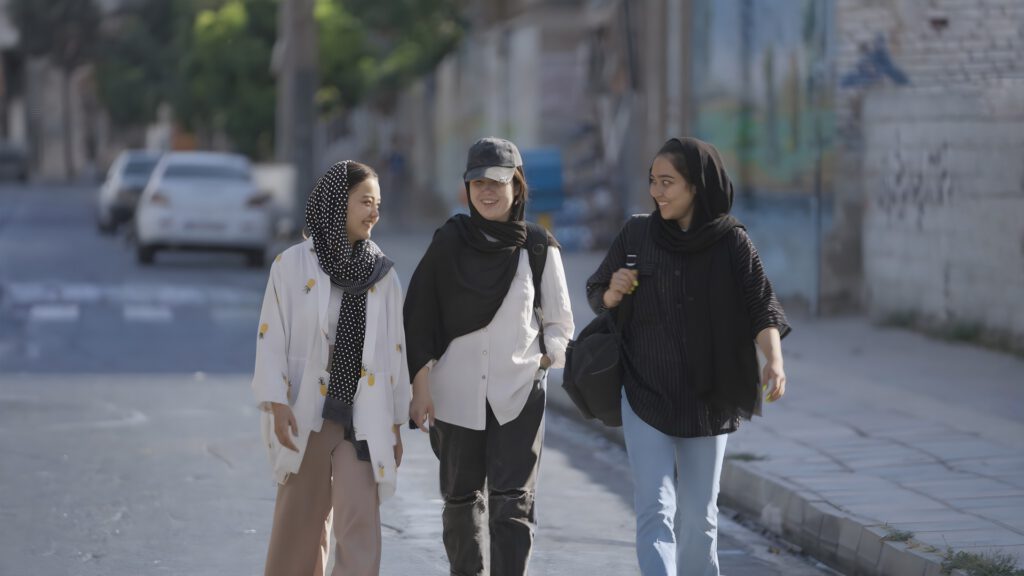
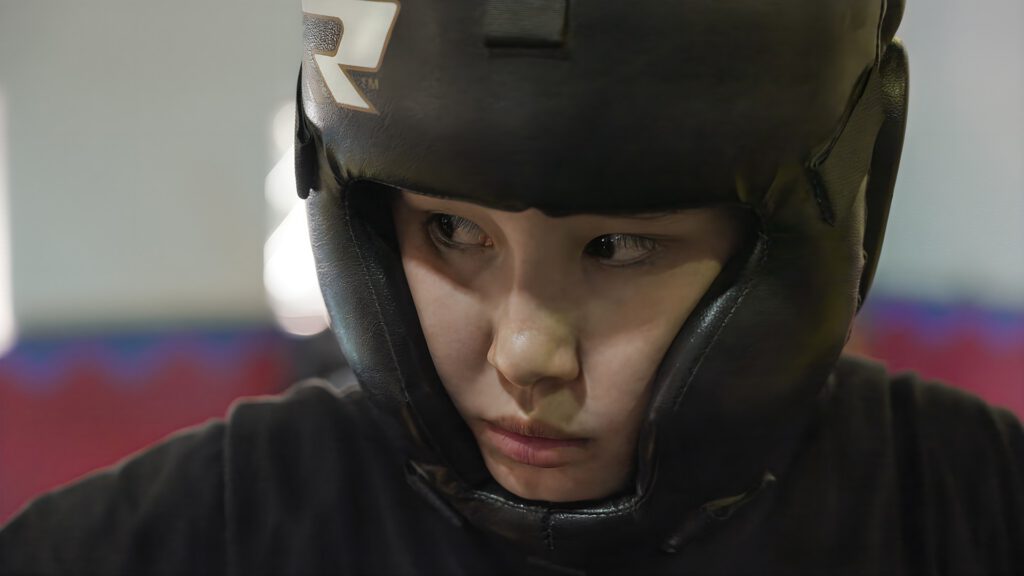
Section: Generation 14plus
Director: Sarvnaz Alambeigi
The Iranian multidisciplinary artist, Sarvnaz Alambeigi, gained recognition for her skills in documentary filmmaking and painting. Having undergone film training at the Documentary Campus Masterschool and the Danish Film School, her notable work includes 1001 Nights Apart, which received prestigious awards and was featured on TV channels such as Arte.
Her latest project, Maydegol, delves into the narrative of an Afghan teenager residing as an immigrant in Iran, determined to fulfill her aspiration of becoming a professional Muay Thai boxer. The film explores her journey, navigating both the pursuit of her dream and the challenges of social injustice and violence outside the boxing ring.
Read my review of this movie in my blog post: Maydegol – Documentary Review: Unveiling Identity and Defying Odds.
My Stolen Planet
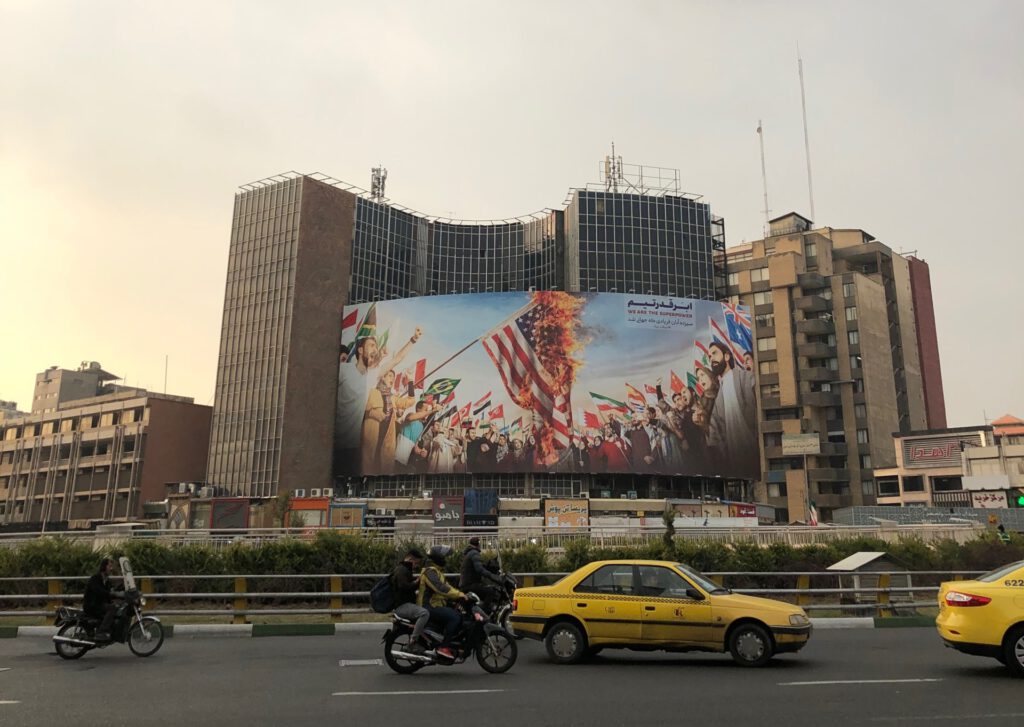
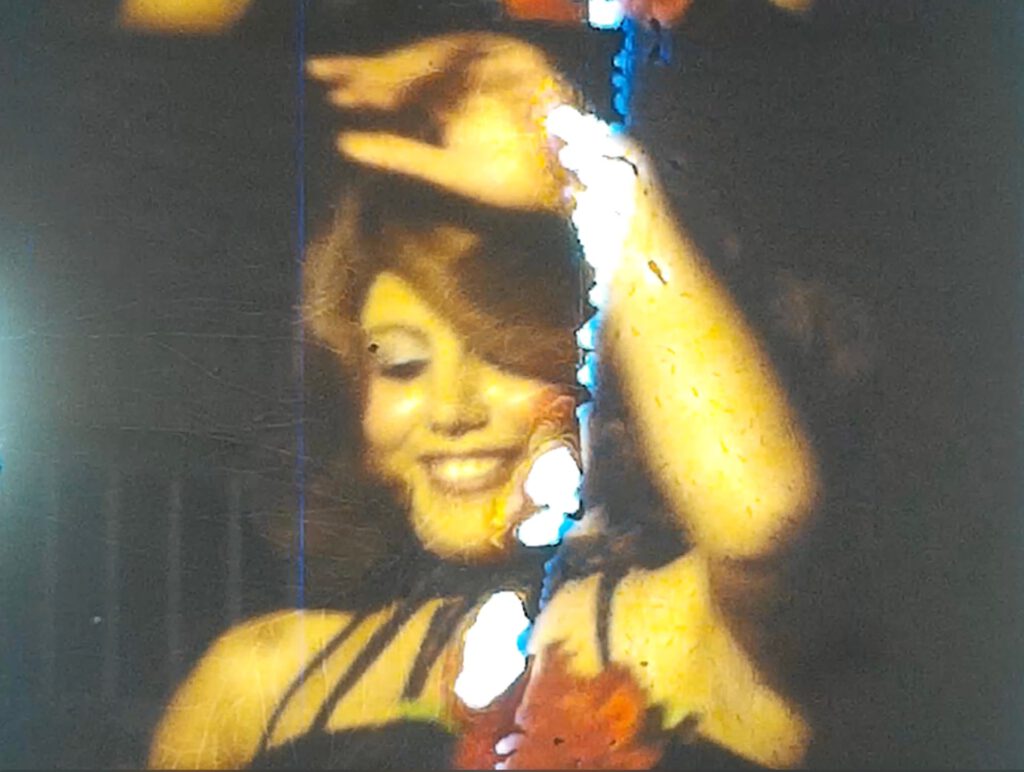
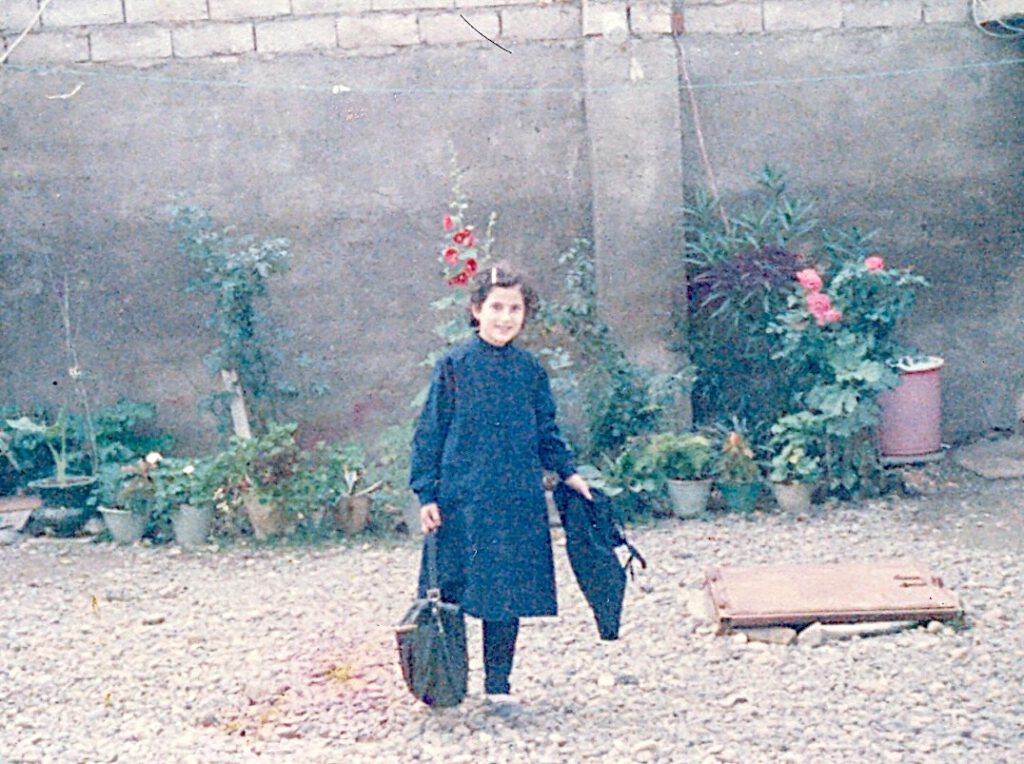
Section: Panaroma Documents
Director: Farahnaz Sharifi
Following the success of her documentary Radiograph of a Family, Farahnaz Sharifi, currently residing in Germany, unveils another feature-length documentary. In her new film, My Stolen Planet, one of the Iranian films in Berlinale, we witness the tale of Farah, compelled to migrate to her personal planet for freedom. There, she acquires others’ memories through Super 8 films, crafting an alternative history of Iran by recording and archiving her own experiences.
What Did You Dream Last Night, Parajanov?
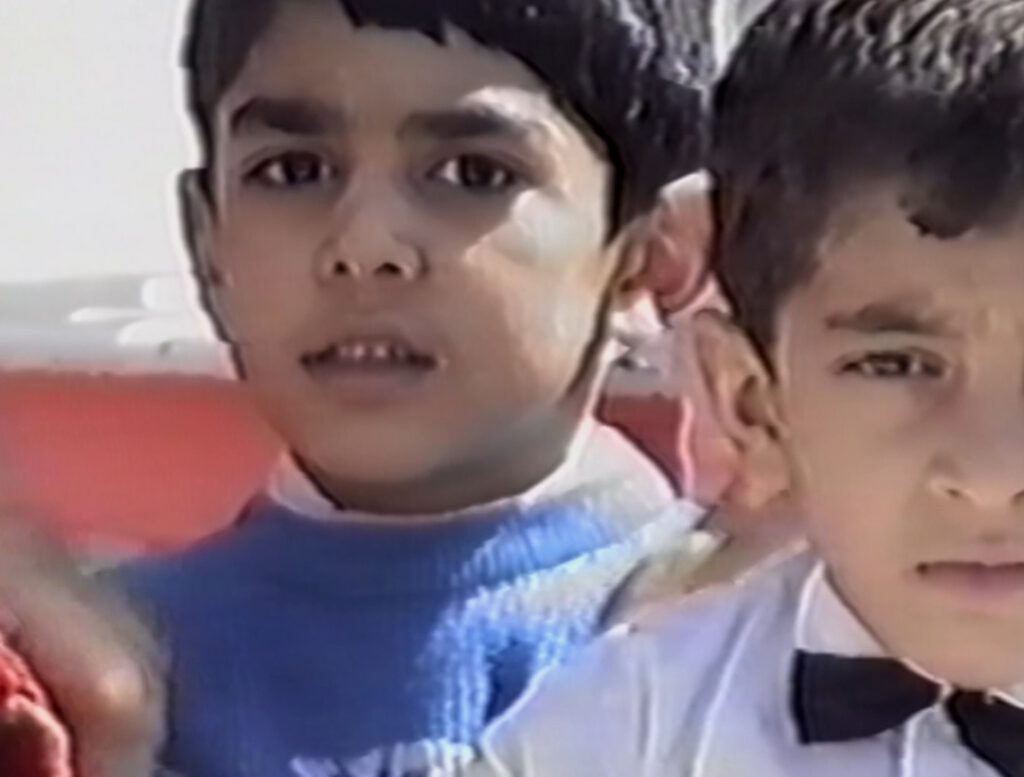
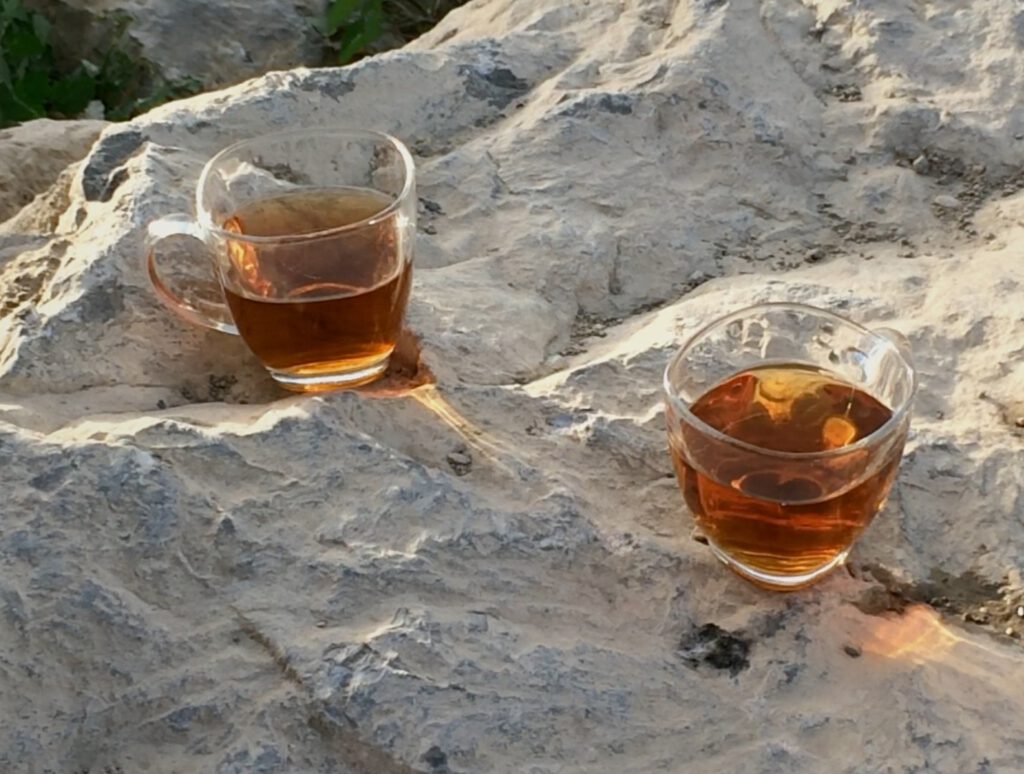
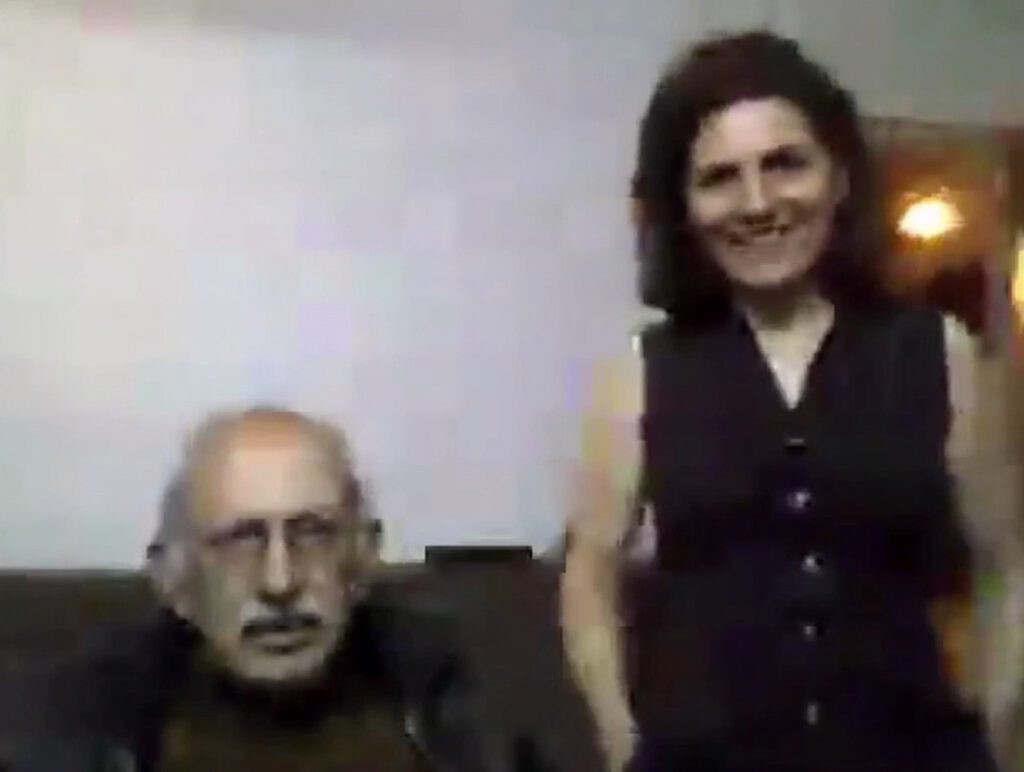
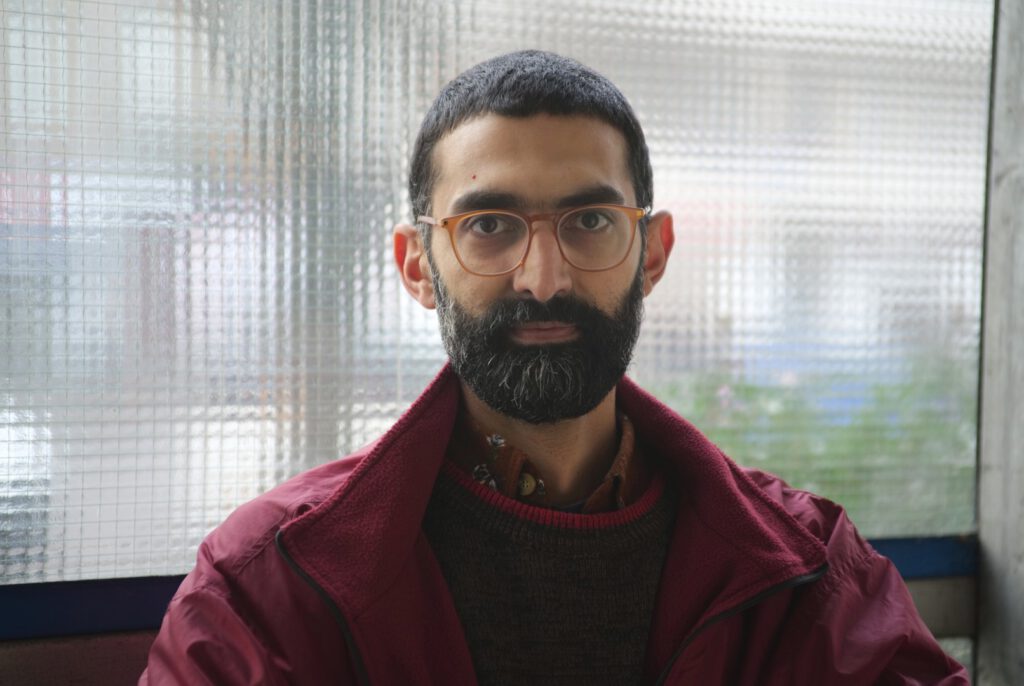
Section: Forum
Director: Faraz Fesharaki
The cinematographer behind the visually stunning film What Do We See When We Look at the Sky? – an entry in the 2021 competition – has returned with his debut featureas, one of the Iranian films in Berlinale, What Did You Dream Last Night, Parajanov?
Born in the enchanting city of Isfahan and currently based in Berlin, Faraz Fesharaki showcased his talent with What Do We See When We Look at the Sky?— his graduation project from German Film and Television Academy Berlin.
Having personally experienced the mesmerizing beauty and poetic essence of What Do We See When We Look at the Sky?, I was captivated by the visual brilliance evident in every frame.
Now, his directorial debut unfolds as a webcam dialogue spanning Berlin and Isfahan. Over the course of a decade, Fesharaki captures conversations with his family, weaving together recordings, text, and VHS memories into a poignant and melancholic intergenerational portrait.
Shahid
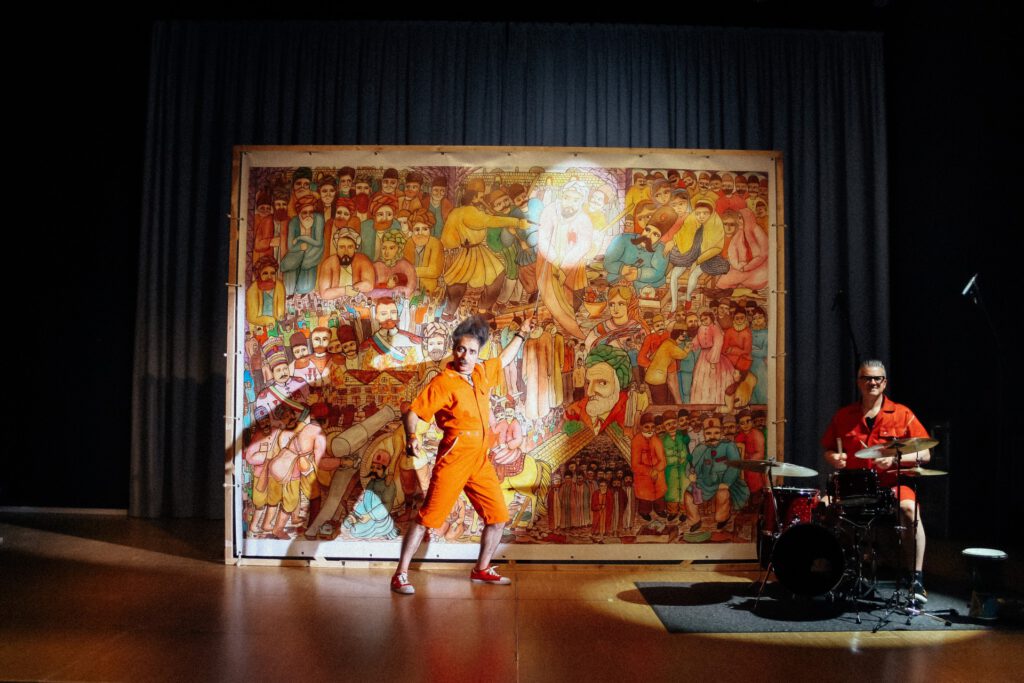
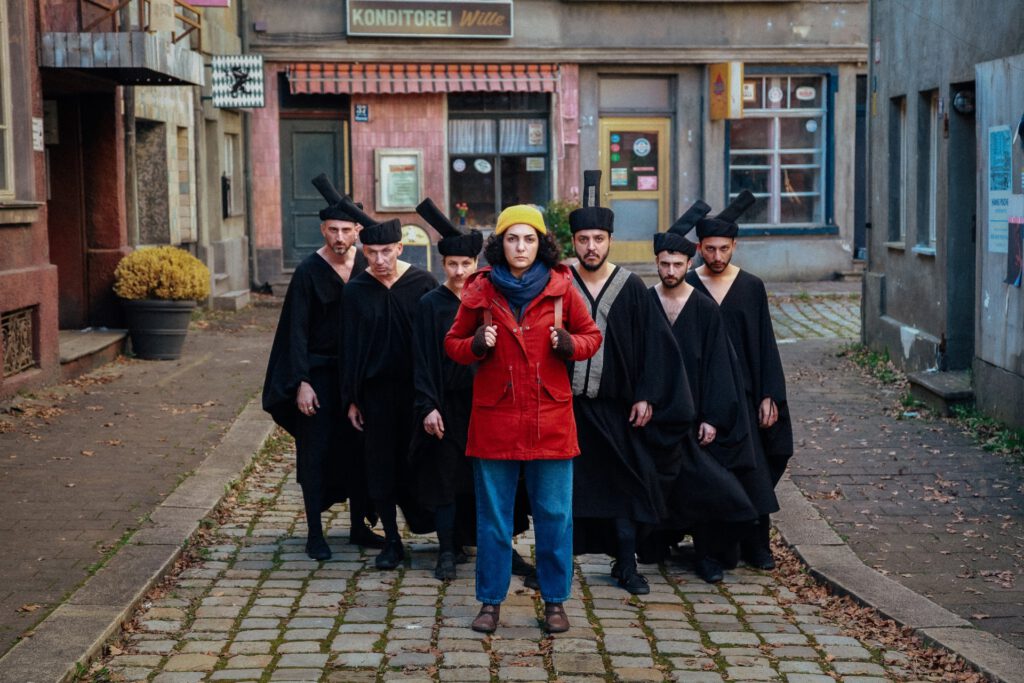
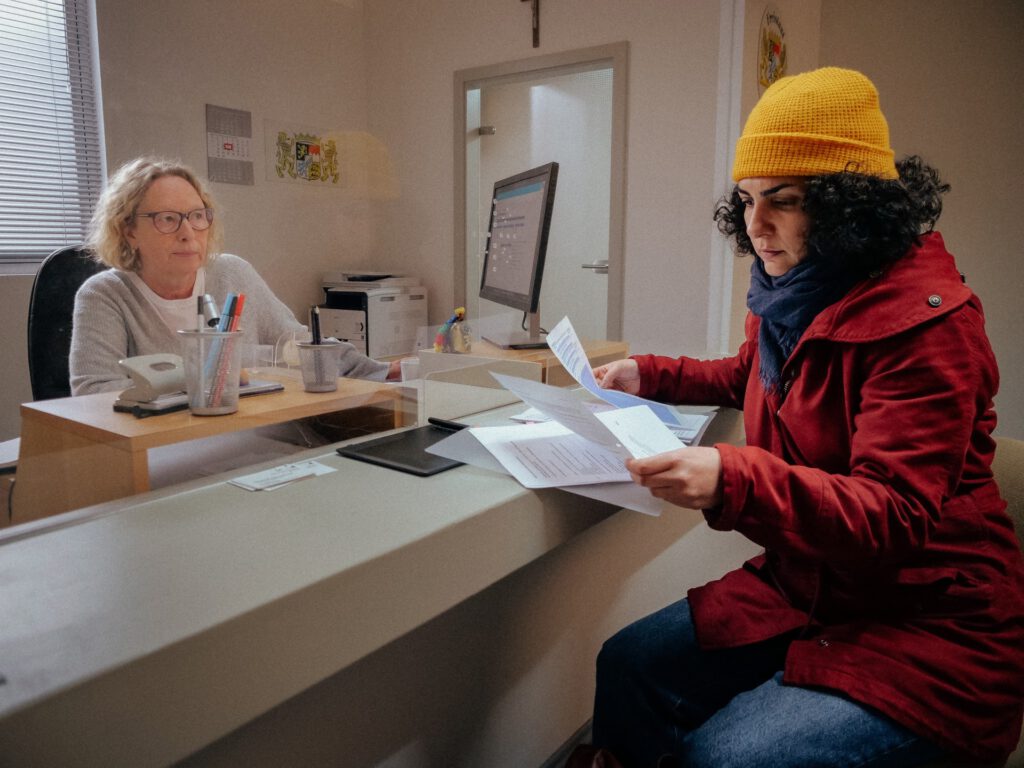
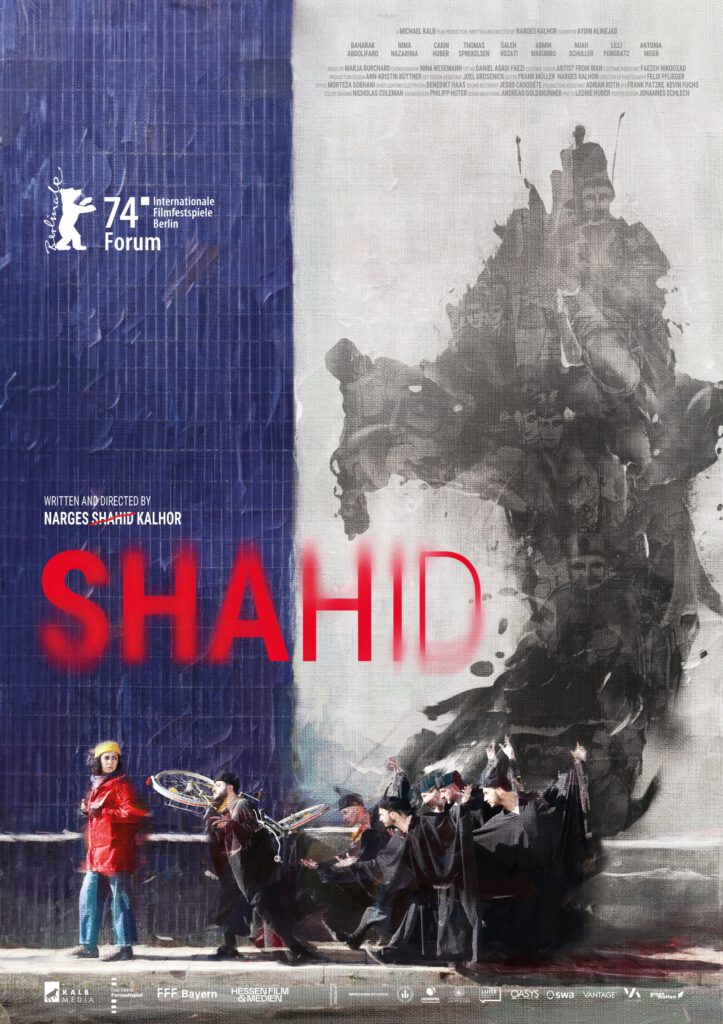
Section: Generation 14plus
Director: Narges Kalhor
In this autofiction, Narges Shahid Kalhor wants to get rid of the first part of her family name, Shahid which means martyr, a burden that proves too heavy. The film’s trailer features a bold declaration, “I believe neither in you, nor in your male God,” hinting at a feminist narrative that resonates with the recent uprisings in Iran. This anticipated work, as one of the Iranian films in Berlinale, blends humor and a poignant exploration of the challenges faced by an expat, promising a compelling and thought-provoking cinematic experience.
City of Poets
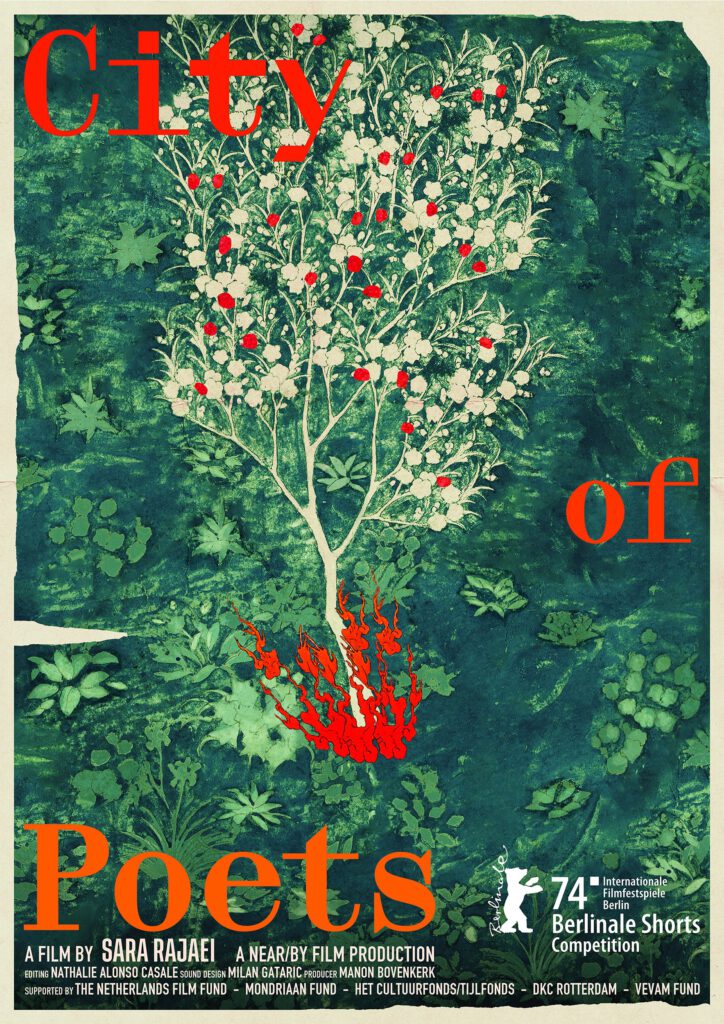
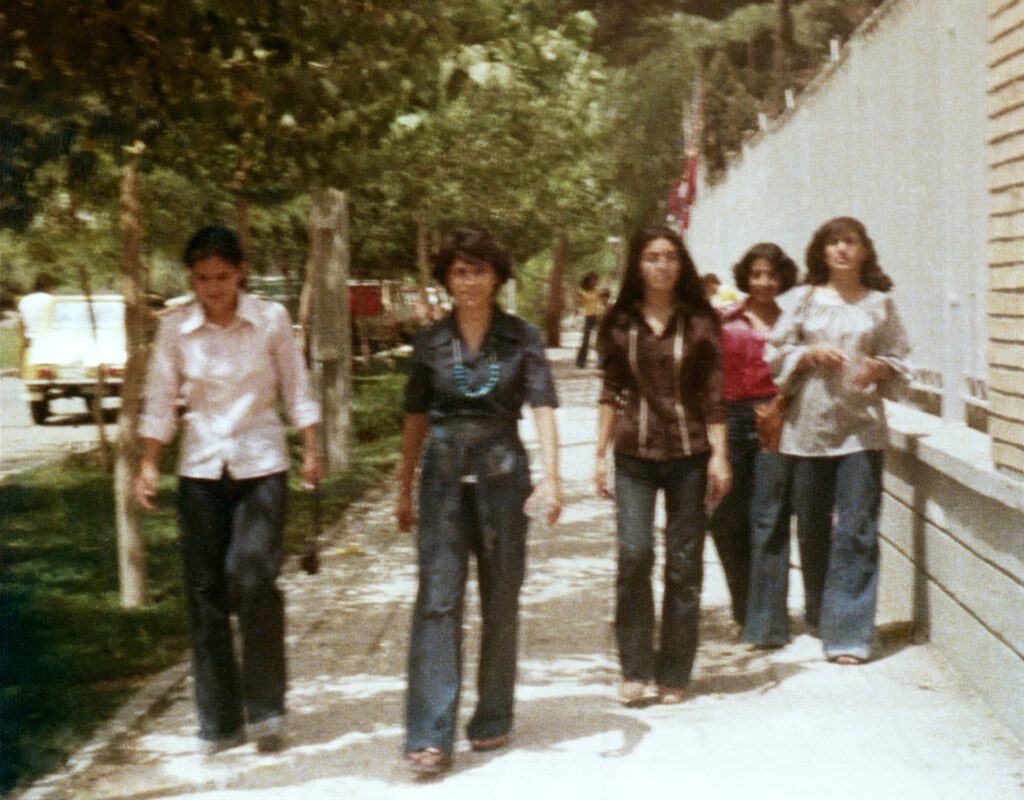
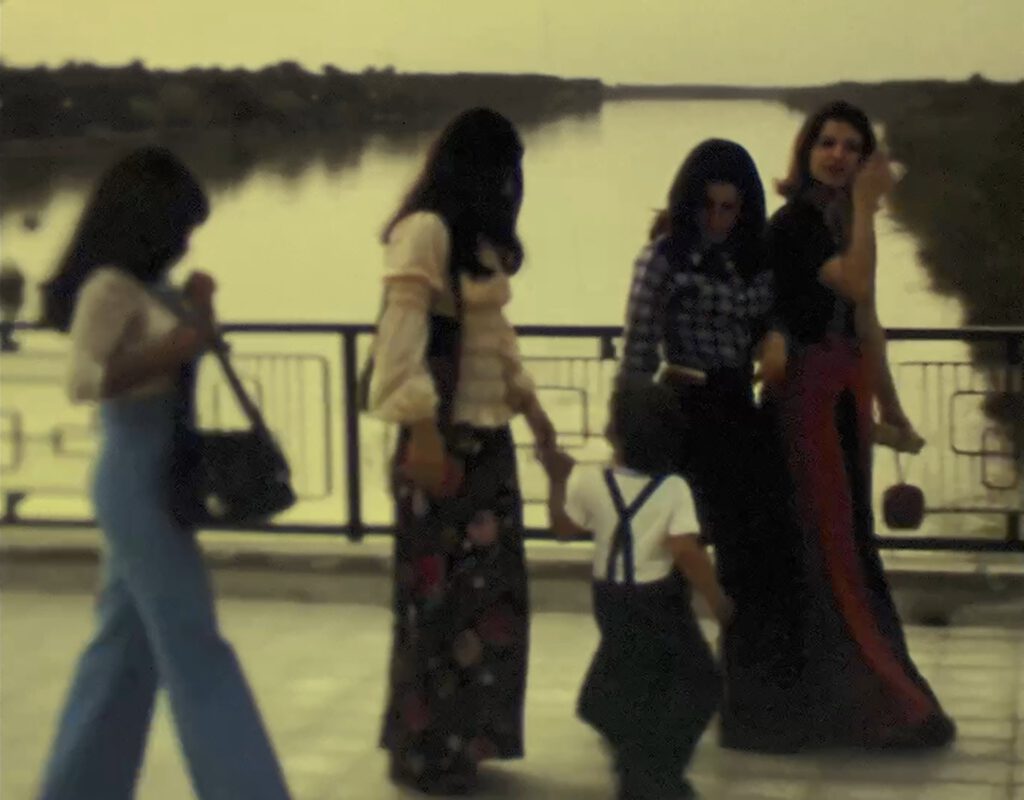
Section: Berlinale Shorts
Director: Sara Rajaei
Hailing from the Netherlands, The City of Poets unfolds the narrative of a small, semi-utopian city adorned with streets named after poets. However, as war disrupts the tranquility, new neighborhoods emerge to shelter refugees, leading to a transformation in street names to honor soldiers.
The director, Sara Rajaei, currently in the process of developing her inaugural feature-length film, brings a unique perspective. As an original visual artist, her focus centers on delving into the concept of time, exploring the absence of images, memory psychology, oral history, narrative techniques, and the intertwining realms of physical and psychological spaces.
Last Swim
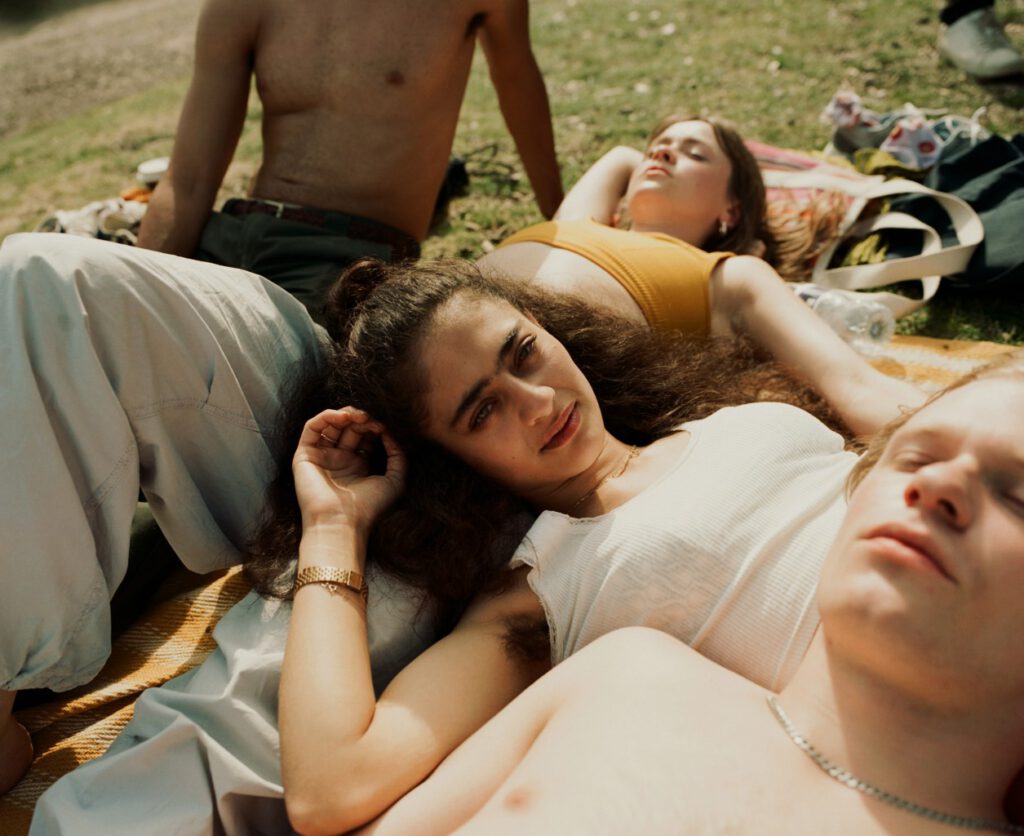
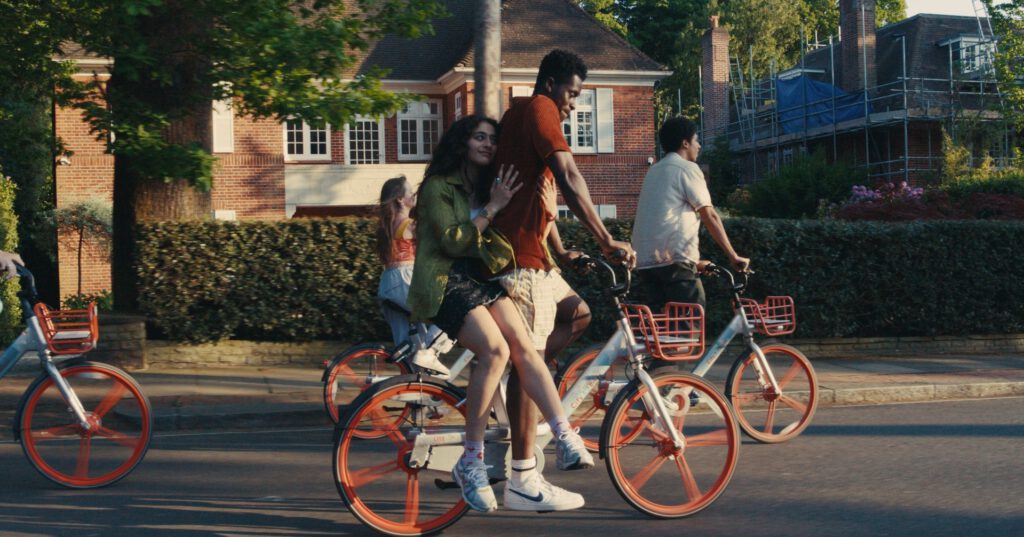
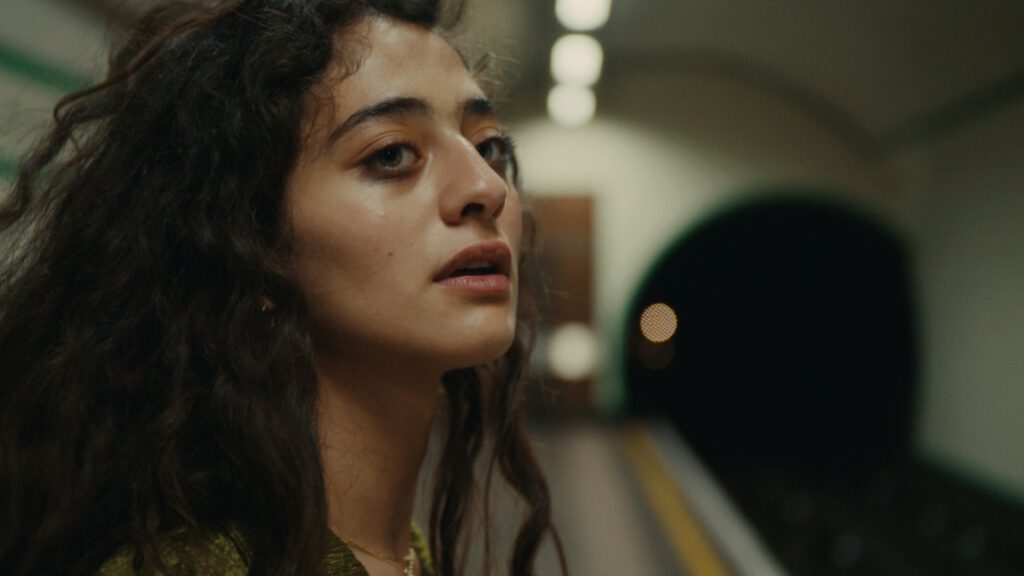
Section: Generation 14plus
Director: Sasha Nathwani
Nominated twice for Best Video at the Brit Awards, Sasha Nathwani, born in London to an Iranian mother and Indian father, explores his filmmaking debut in Last Swim. The film, which is also the opening film of Generation, unfolds the narrative of Ziba, an ambitious Iranian-British teenager navigating a journey across London with her friends, all the while silently contending with a pivotal life-changing decision.
Time for Maturity
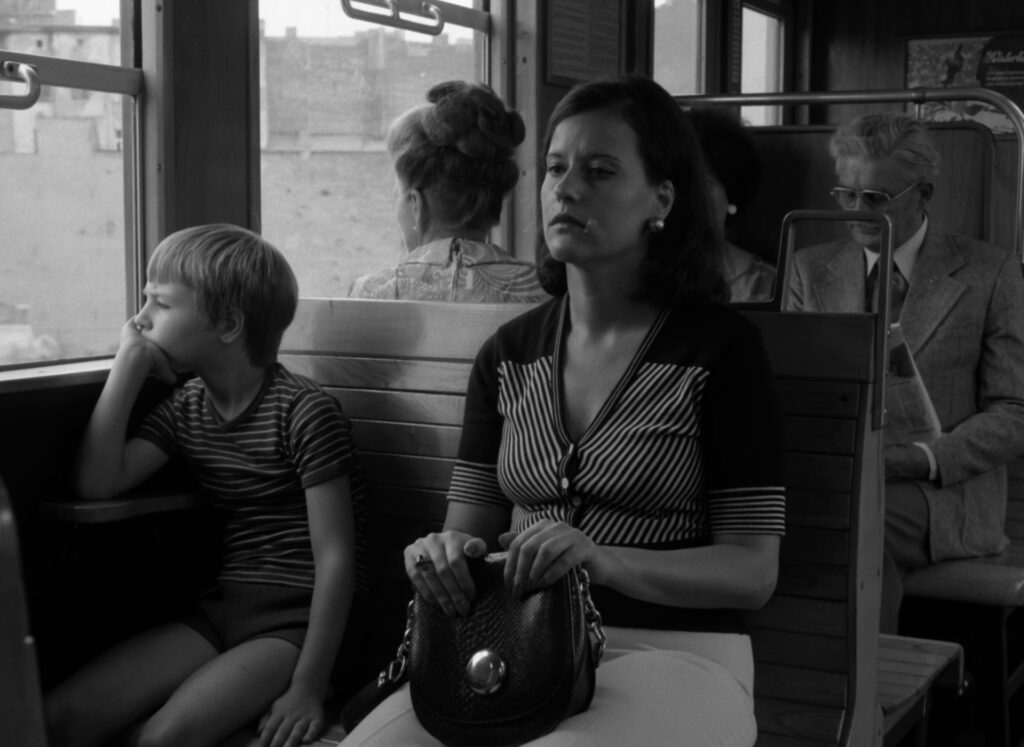

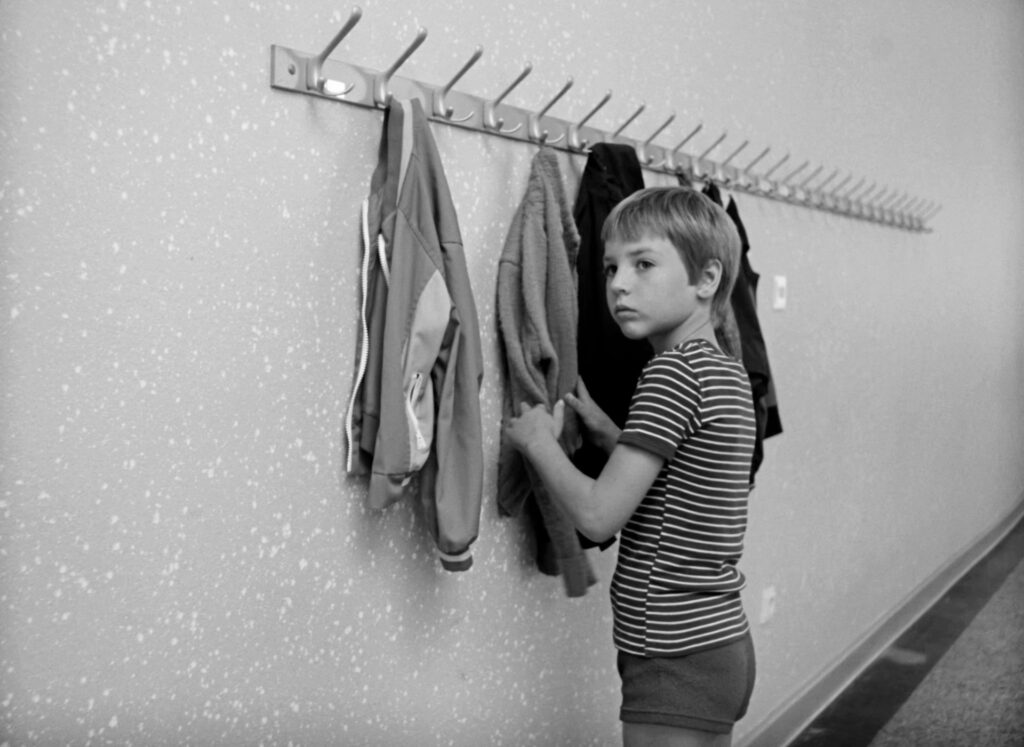
Section: Berlinale Classics
Born in 1944, the Iranian filmmaker studied in Vienna and Paris during the 1960s, creating acclaimed short films and two feature-length films in his home country. He migrated to West Germany in 1975, producing 13 more directorial works, and later spent his final years in the USA.
Despite his achievements, each phase of his life was characterized by challenges, including financial struggles during his first European stay, conflicts with censors in Iran, polemical disputes with film funding and TV editors in Germany, and a difficult time in the USA marked by serious illnesses, poverty, and a self-destructive lifestyle. His journey was far from the conventional success story of a globetrotting director.
Saless drew inspiration for this film from a line in Chekhov’s Swan Song: “I am like the wind blowing across the lonely fields….” Time for Maturity depicts the life of nine-year-old Michael, navigating a monotonous routine between school and a lonely apartment. His mother, who works as a prostitute, is seldom present, returning home late at night. The film captures a poignant moment when Michael encounters his mother at an inopportune time.
Conclusion
As we wrap up our journey through the Iranian films featured at Berlinale 2024, I’m eager to hear from you, dear readers. Which of these films caught your eye? Share your thoughts and let me know which ones you’d like to watch. How do you perceive Iranian cinema? Your insights add depth to the global conversation about film. Embrace the diverse narratives, and let’s celebrate the vibrant world of Iranian cinema together.
